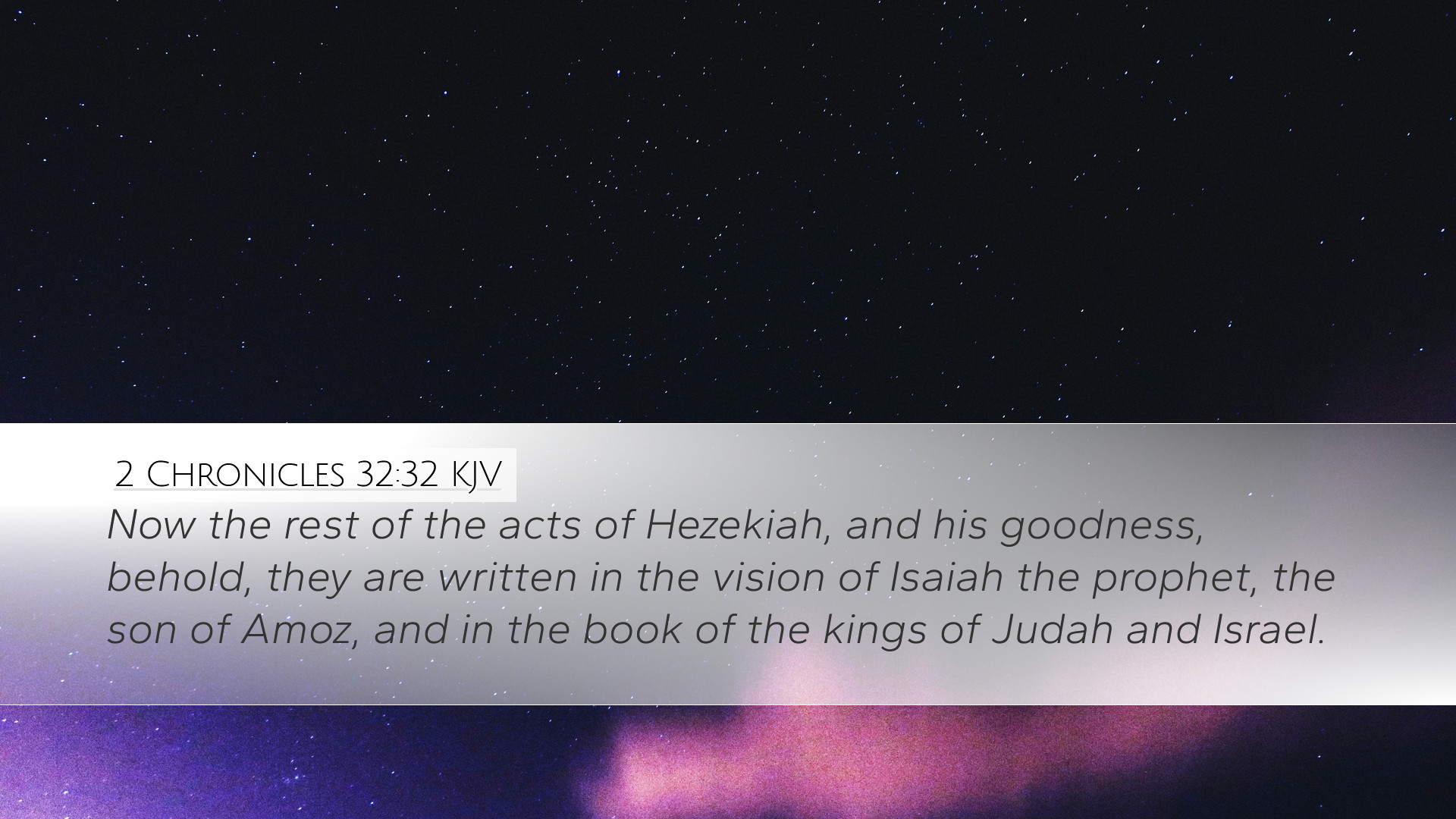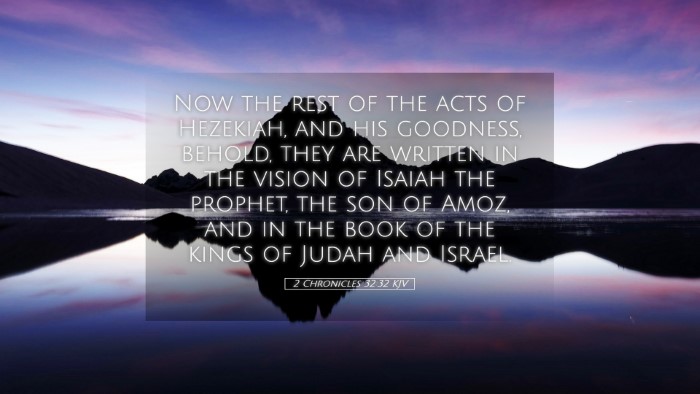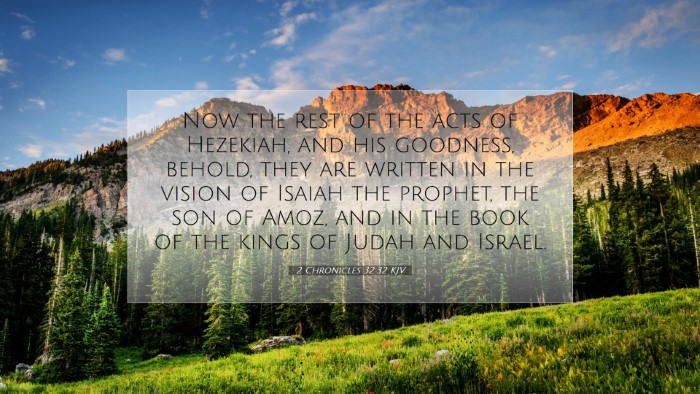Commentary on 2 Chronicles 32:32
Verse: 2 Chronicles 32:32
"Now the rest of the deeds of Hezekiah, and his goodness, behold, they are written in the vision of Isaiah the prophet, the son of Amoz, and in the book of the kings of Judah and Israel." (2 Chronicles 32:32, ESV)
Introduction
The concluding remarks of 2 Chronicles 32 highlight the reign of King Hezekiah, focusing on his righteous acts and his faithfulness to God. This verse serves as a bridge to the legacy left by Hezekiah, signifying the importance of spiritual leadership and the reverberating effects of a life dedicated to God. This commentary synthesizes insights from several public domain commentaries for a comprehensive understanding of this text.
Hezekiah's Legacy
Hezekiah is remembered not just for his administrative and military achievements but for his intrinsic goodness and faithfulness, which are emphasized in this verse. As noted by Matthew Henry, the “goodness” of Hezekiah encapsulates “the loyalty and faith he upheld to God,” showcasing his commitment during tumultuous times.
The Nature of His Goodness
Albert Barnes elaborates on the attributes of Hezekiah’s goodness, indicating that it encompassed both his spiritual reforms and his efforts in restoring the worship of Yahweh after previous periods of idolatry. Hezekiah is praised for fortifying Jerusalem and reestablishing the practice of Passover, reflecting a deep commitment to covenant fidelity. This is a pertinent reminder of the impact a righteous leader can have on the spiritual vitality of a nation.
Documentation of His Deeds
The verse points to “the vision of Isaiah the prophet,” indicating the prophetic endorsement of Hezekiah's reign. Adam Clarke highlights the importance of maintaining prophetic records as they serve as authoritative accounts of God's dealings with His people. This validates the narrative of Hezekiah and brings a sense of divine approval to his actions.
Clarke further explains that the documentation of Hezekiah's life and reign in the annals of the “book of the kings of Judah and Israel” can be viewed as a crucial element in biblical historiography. It demonstrates the interconnectedness of prophetic ministry and national leadership, inviting reflection on contemporary spiritual leadership.
The Vision of Isaiah
The reference to Isaiah in this passage speaks volumes about the prophetic oversight during the reign of Hezekiah. The prophets served not only as messengers but also as critical advisors in the life of the nation. Matthew Henry notes that the prophetic writings often provide both admonition and encouragement, equipping leaders like Hezekiah to navigate through challenges with divine guidance.
Isaiah's Influence
Hezekiah’s distinct actions, supported and sometimes challenged by Isaiah, illustrate the dynamic relationship between a godly king and a prophetic voice. As Albert Barnes observes, God often used prophets not only to relay messages but also to shape the futures of nations. The chronicler’s mention of Isaiah emphasizes the divine connection that legitimized Hezekiah’s reign and actions.
The Importance for Pastors and Leaders
The spiritual insights in 2 Chronicles 32:32 resonate deeply with current pastors, theologians, and Christian leaders. Drawing from these commentaries, leaders are encouraged to reflect on the following:
- The Importance of Goodness: Hezekiah’s life is a reminder of the value of character in leadership. His “goodness” should inspire leaders to embody virtues of integrity and faithfulness.
- Documenting God's Work: Just as the deeds of Hezekiah were recorded, leaders today should document their spiritual journeys and milestones, recognizing the providence of God in their ministries.
- Embracing Prophetic Voices: Leaders are urged to seek wisdom from God through prophetic insights found in Scripture and the community of faith, remaining open to divine correction and direction.
Conclusion
In conclusion, 2 Chronicles 32:32 stands as a testament to the significance of Hezekiah’s reign and the rich heritage of godly leadership. By examining the insights from Matthew Henry, Albert Barnes, and Adam Clarke, we uncover layers of meaning that encourage contemporary leaders to cultivate integrity and faithfulness in their pursuits. As they document their lives and remain receptive to the prophetic ministry, they can leave a lasting legacy that honors God and impacts future generations.


